'A pinnacle for music': WZZQ fans, staff members to celebrate popular Jackson radio station
Celebrated Mississippi author, restaurateur and master chef Robert St. John will appear at Duling Hall Saturday to moderate a panel discussion about Jackson’s fabled radio station WZZQ.
The discussion will be part of what is being called a “WZZQ Listener Event” sponsored by Cue Burn Films, LLC. The film company is producing a documentary about the rock station which broadcast from 1968 until 1981.
“I was honored to be asked — it is a privilege,” said St. John of his planned participation. “I was in the radio business before I got into the restaurant business and WZZQ was a station I always looked up to — it was just a pinnacle for music,” he said.
Although St. John grew up in Hattiesburg, he said that didn’t stop him from listening to WZZQ as a teenager.
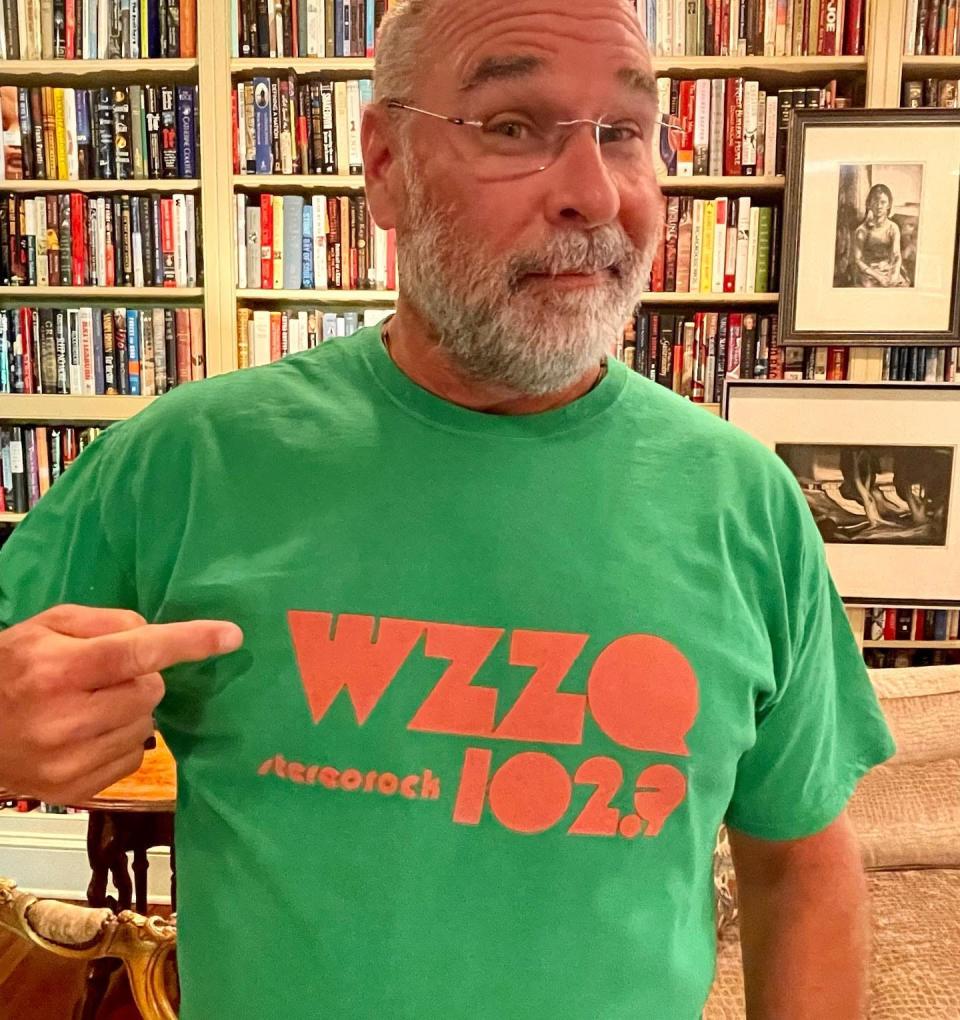
“I had to get the antenna positioned just right but I was able to listen at night — so I heard a lot of Perez,” St. John said.
COVID: Hinds County's COVID new cases flat; Mississippi cases fall 8.9%
JSU: Jackson State University will introduce a new Professional Accountancy program in the fall
Perez Hodge is one of the few original WZZQ announcers still working in Jackson radio — currently as a producer of the Gallo Show at Supertalk Mississippi. He and St. John will be joined at Saturday’s panel by former WZZQ program director Curtis Jones (known on-air as “Sebastian”), former announcer Bruce Owen, former news anchors Bill Ellison and Lamar Evans, and Sam Adcock, the son of former WZZQ music director David Adcock.
Doors will open at 10 a.m. Fans and former listeners are encouraged to bring stories, photos, flyers, bumper stickers and any other memorabilia they may have connected to the station.
“We won’t take away any of the items — we will just scan them and give them right back,” said Ann Ford of Cue Burn Films, producer of the documentary. “We will also have cameras set up and will encourage everyone to tell their WZZQ stories. WZZQ built a community of listeners, and the project would be incomplete without their voices.”
The panel discussion will be held from noon until 2 p.m. and afterward there will be an additional hour for people to share items and stories.
WZZQ’s history as a rock station began with what was known as WJDX-FM operating from a tiny room inside the WLBT building on Jefferson Street. Two men, Phil Seymour and Fred Mitchell, who had been exposed to pioneering free-form stations like KSAN in San Francisco, approached station management about trying a similar format in Jackson.
WZZQ is born
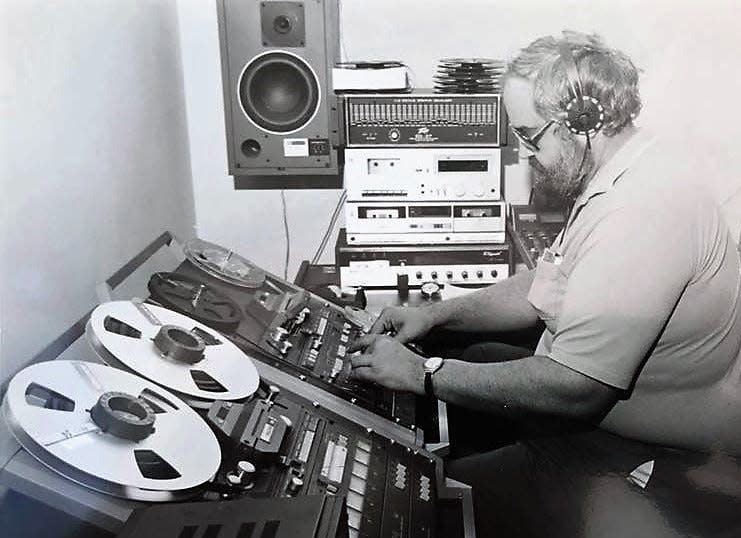
WJDX-FM at the time operated as an easy listening and classical station, generating little in the way of either listenership or advertising. So, with little to lose, the station’s owner, Lamar Life Insurance, gave Seymour and Mitchell the green light.
Owen, who began working there in 1969 remembers the biggest problem early on was getting a steady supply of new music.
“I would often have to drive to New Orleans where the record companies had offices and I would come home with a trunk full of albums," Owen said. "Eventually, they put us on their mailing lists.”
As the station grew, so did its audience. By 1973 new studios had been built on Beasley Road and the station’s call letters were rebranded as WZZQ.
“We played music from all over the place — country, jazz, rock, blues and folk. So there were a lot if different styles,” said Jones, who joined the staff in 1972. “Our philosophy was to teach people about good music. That might not have been the smartest thing to do at a commercial station but it seemed to work.”
The trick for DJ’s was to make it all fit together, so the ability to create “sets,” or groups of songs that somehow related to one another, was a prized talent.
As David Adcock wrote in 1981, “We were at our best when we could create a complete emotional experience — one with a beginning, a middle and an end. At ZZQ no one song stood alone. It acquired its significance from what came before and what followed after.”
By the mid '70s the station’s reach had become immense. A July 4, 1974, free concert sponsored by WZZQ brought a staggering crowd of young people to the reservoir’s Lakeshore Park to hear “Let’s Eat,” and “Larry Raspberry and the Highsteppers.”
Read this: Urban South craft beer coming to Mississippi. How you can be among the first to sample it
In other news: A bond hearing is set in connection with Jimmie "Jay" Lee's disappearance. Here's an update
“That was so much fun — we estimated about10,000 people were there and Larry Raspberry was just great,” Owen said.
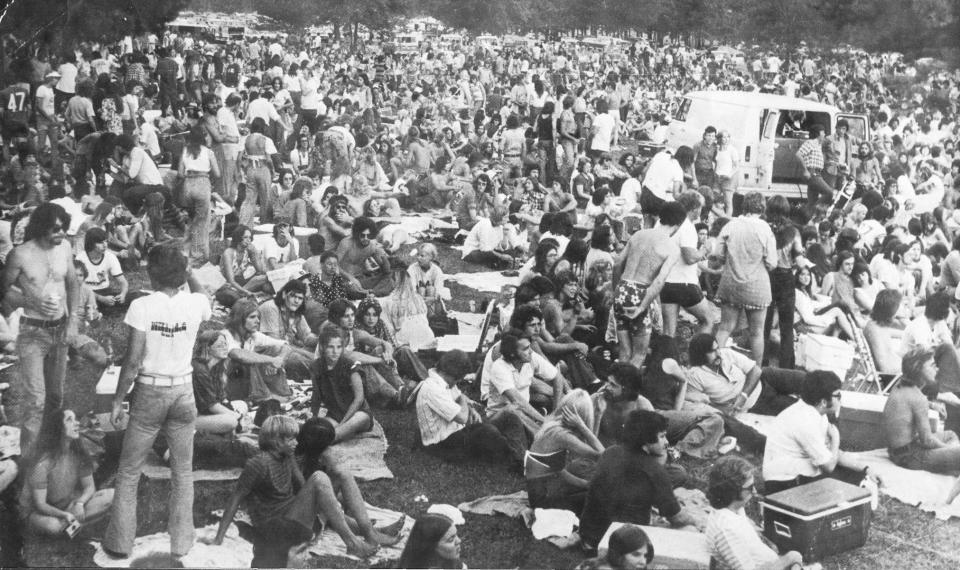
'Free the Rock'
The growing audience also meant that station managers, ever mindful of ratings, also started paying more attention. The free-form “play anything” format gradually gave way to a more tightly formatted rotation of songs, closely tied to nationally published AOR or album-oriented rock charts.
The tighter format didn’t sit well with some of the station’s more diehard fans. By 1980 flyers were posted around Jackson urging listeners to “Free the Rock” by writing protest letters, but the effort seemed to have little effect.
Then in 1981, rumors began circulating that Lamar Life, which had lost its license to operate flagship TV station WLBT a decade earlier, was ready to call it quits in the broadcasting business. And the likely buyer? A country radio station owner and promoter from Little Rock named Kerby Confer.
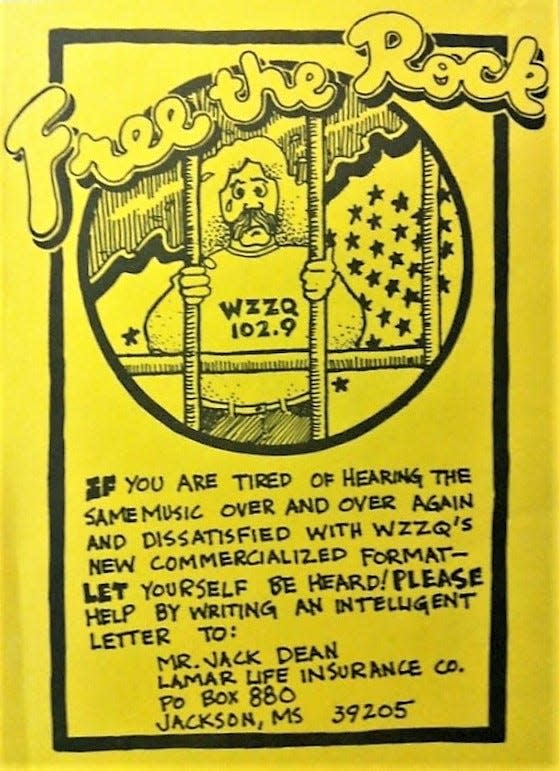
For about two weeks at the very end, management again relaxed the rules, essentially letting DJ’s play what they wanted. The “new Q” was again sounding like the “old Q.” Station manager Marshall Magee and Program Director Dave Perkins said the change would allow those “totally dedicated, devoted listeners to really enjoy the station.”
Then on July 2, 1981, the hammer fell, ending with a “death set” of songs late into the night that included “Station to Station” (David Bowie, 1976) and “The Death of Rock and Roll” (Todd Rundgren, 1975). The final song was “The End,” a haunting 12-minute rock ballad by the Doors written by lead singer Jim Morrison in 1966 about his breakup with an ex-lover.
“This was WZZQ Jackson,” came the final, curt announcement before the transmitter was turned off. People cried.
WZZQ is dead
WZZQ was officially dead, but its legacy lived on in interesting ways. Notably, Adcock created a hugely popular Sunday morning radio program called “Tunes Til’ Two,” largely reminiscent of WZZQ’s halcyon days. Adcock died in 2001, but in recent years his son, Sam Adcock has carried the tradition forward on radiofreejxn.com featuring both new content and recorded tapes of his dad’s original shows from the 1990s.
Ford, who is directing the film, said she got the idea during a casual conversation with Ellison, who is a neighbor.
“We started talking about ZZQ and Bill said, 'Somebody should make a documentary,’ and he was right,” Ford said.
She will be joined by producer Robbie Fisher and director of photography Don Warren in completing the final edit. The Magnolia Independent Film Festival is serving as a fiscal sponsor.
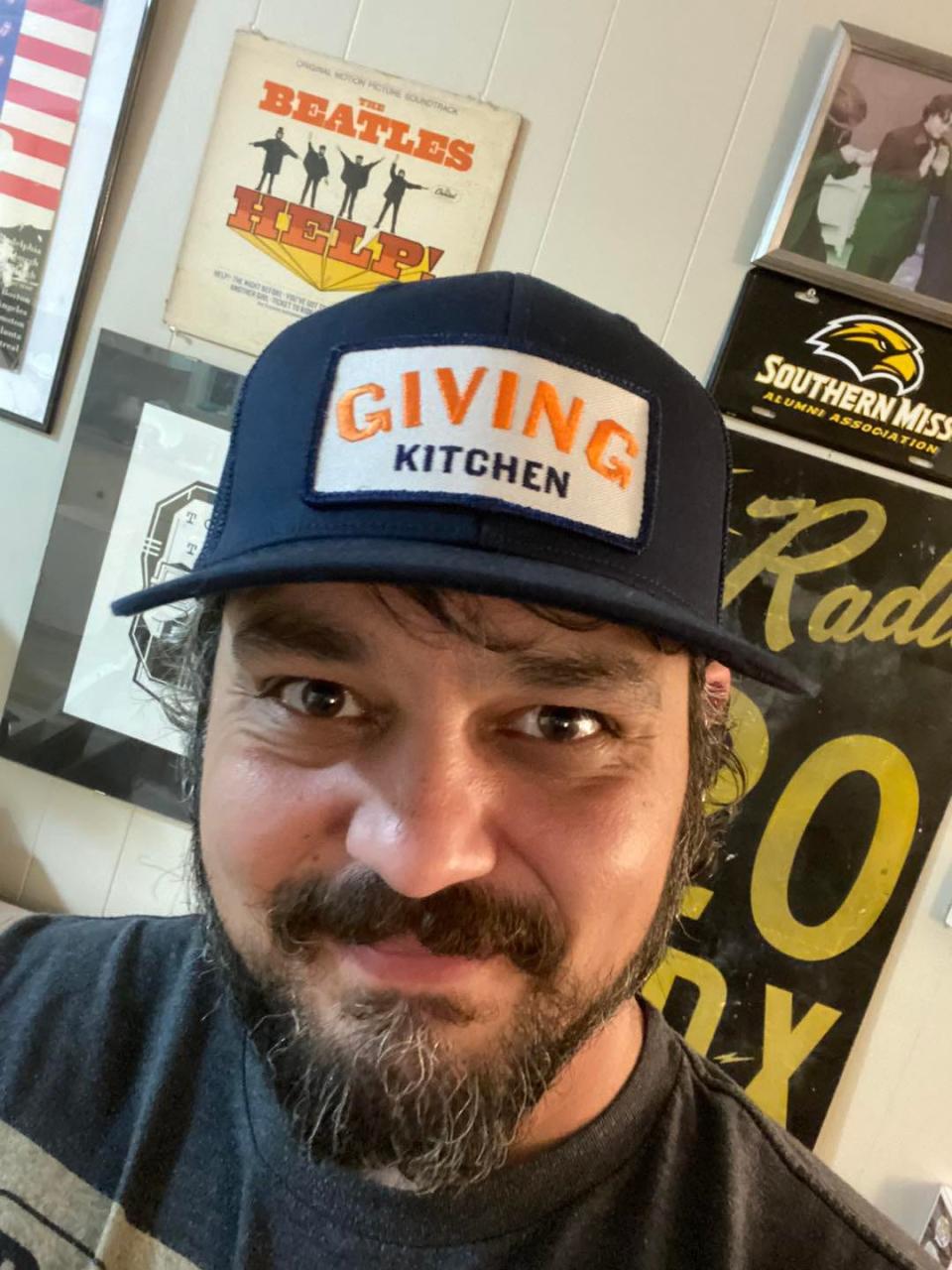
The event and documentary are being made possible by a grant from the Mississippi Humanities Council, through support from the National Endowment for the Humanities.
Admission Saturday is free but due to limited seating tickets must be ordered in advance through eventbrite.com.
Links to tickets and further information may be found at facebook.com/WZZQtheMovie. Persons unable to attend who would still like to participate are invited to contact Ann Ford through zzqdoc@gmail.com.
More from Ed Inman: Madison County Schools removes 10 books from general library circulation. Here's why.
Hunting: How many deer can you shoot in Mississippi? A lot more than you probably think.
If you go
Event: WZZQ Listener Event, allowing fans of the former station to share memories and memorabilia with documentary filmmakers.
Date: Saturday, Aug. 13, 2022
Location: Duling Hall, 622 Duling Ave., Jackson, 39216
Times: 10 a.m. until 3 p.m. with a panel discussion moderated by Robert St. John from Noon until 2 p.m.
Tickets: Available on a limited basis at no charge through eventbrite.com. For links and more information visit facebook.com/WZZQtheMovie.
This article originally appeared on Mississippi Clarion Ledger: WZZQ 102.9 FM of Jackson, Mississippi, documentary in the works

